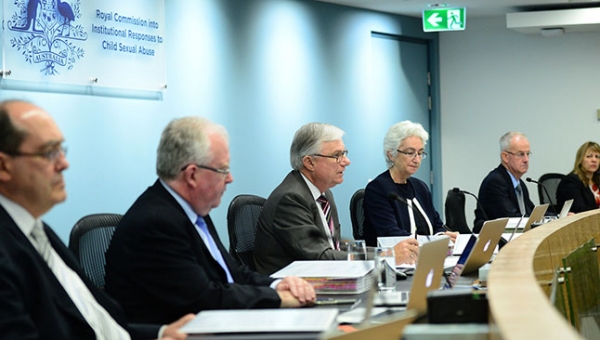It has now been over one year since the conclusion of the Royal Commission into Institutional Responses to Child Sexual Abuse (Royal Commission). In its 17-volume Final Report (along with earlier final reports on Redress and Civil Litigation, Working with Children Checks and the Criminal Justice System), the Royal Commission made hundreds of recommendations. These were aimed at Commonwealth, state and territory governments, as well as at particular institutions, designed to address institutional child sexual abuse through legal, regulatory and institutional change.
Two of the Royal Commission’s recommendations (recommendations 17.2 and 17.3), designed to maintain the tremendous momentum for change created by the Royal Commission, were that governments and major institutions provide five consecutive annual progress reports on the implementation of the Royal Commission’s recommendations. The first of these annual progress reports, the 2018 reports, have now been released.
So what do the 2018 progress reports reveal about how Australia’s governments and major institutions have addressed institutional child sexual abuse over the past year and their future plans?
In this series of articles, we will summarise the key components of the 2018 progress reports that have been released by the Commonwealth Government, most state governments, the Australian Capital Territory government and by some of the major religious institutions and which are relevant to non-government schools. (Note that as at 14 March 2019 neither the Victorian or Northern Territory government has published an annual progress report.)
In this Part One we focus on the Commonwealth Government’s Annual Progress Report. In Part Two we will focus on the reports of those states and territories that have responded. In Part Three we will look at the reports of some of the major institutions.
Part One
The Commonwealth’s Annual Progress Report 2018
Child Safe Standards
In August 2017, the Australian Government committed to developing and applying the Commonwealth Child Safe Framework. In July 2018, the Australian Government established the National Office for Child Safety to lead the development of national policies to improve children’s safety.
The Australian Government and state and territory community services ministers oversaw the development of the National Principles for Child Safe Organisations. (The National Principles are the national standards for child-related organisations as recommended by the Royal Commission and produced by the Australian Human Rights Commission in consultation with government bodies and stakeholders from all jurisdictions). These have now been endorsed by the Council of Australian Governments (COAG).
Over 2019, the National Office for Child Safety will provide national leadership for the implementation of the National Principles. It will work with state and territory governments, child safety advocates and organisations working with children to promote the National Principles.
In October 2018, all education ministers around the country agreed to the Australian Student Wellbeing Framework (Wellbeing Framework). The Wellbeing Framework explains how schools can be safe and supportive places for students.
eSafety
The Australian Centre to Counter Child Exploitation (ACCCE) opened on 1 July 2018. The ACCCE aims to lead a national response to free children from exploitation. The ACCCE brings together law enforcement, government, industry, civil society and academia to find new ways to prevent online child sexual abuse and exploitation.
The ACCCE will identify challenges, gaps and opportunities to prevent and respond to online child sexual abuse. Working with the National Office for Child Safety, the eSafety Commissioner and other relevant stakeholders, the ACCCE will also develop online safety initiatives for Aboriginal and Torres Strait Islander communities.
ThinkUKnow Australia is a nationally-delivered online safety program led by law enforcement that has been around for almost 10 years. It is a partnership between the Australian Federal Police (AFP), the Commonwealth Bank of Australia, Datacom and Microsoft Australia. The program is delivered together with state and territory police and Neighbourhood Watch Australasia. Now nearing its tenth year in Australia, the AFP will continue to expand the ThinkUKnow program and training during 2019.
Preventing and Responding to Children’s Harmful Sexual Behaviours
The National Office for Child Safety is managing the design and implementation of a National Strategy to Prevent Child Sexual Abuse in institutional and non-institutional settings. The National Strategy will prioritise the issue of children’s harmful sexual behaviours by looking at measures to prevent these behaviours as well as interventions if it happens.
Mandatory Reporting and Reportable Conduct
The Commonwealth’s Annual Progress Report notes the progress made by some states and territories in respect of these areas, as these are not within the jurisdiction of the Commonwealth.
Record Keeping
The Australian Government and state and territory governments have agreed to improve the ability of individuals to access their records and to improve the record keeping practices of institutions.
For example, on 11 October 2018, the National Archives of Australia issued General Records Authority 41 – Child Sexual Abuse Incidents and Allegations (GRA 41). This document explains that Australian Government agencies must keep all records that relate to child sexual abuse incidents and allegations for at least 45 years.
Information Sharing
The Council of Attorneys-General Family Violence Working Group is developing an information sharing framework. This framework will improve the sharing of information, such as court orders, judgments, transcripts and other documents, between the family law, family violence and child protection systems. Technological solutions to help this work well are being considered.
Trauma Informed Practice within Schools
Not addressed in the Annual Progress Report.
Teacher Registration
In September 2017, all education ministers agreed to a National Review of Teacher Registration (the Teacher Registration Review). The Teacher Registration Review was carried out by an independent expert panel, appointed by the Australian Institute for Teaching and School Leadership. The panel released its final report, One Teaching Profession: Teacher Registration in Australia in September 2018. It made 17 recommendations, including about child safety and teacher registration.
At their first meeting in 2019, education ministers will look at how the Teacher Registration Review’s recommendations will be implemented. Therefore, further developments can be expected over 2019.
Working with Children Checks (WWCC)
In February 2017, the Australian Government established a working group made up of state and territory representatives to consider the recommendations of the Royal Commission’s WWCC Final Report. National Standards for WWCC have now been developed and endorsed by the Council of Attorneys-General. (We note that the Australian Government and the Queensland, South Australian and Tasmanian Governments have now endorsed the National Standards for WWCCs.)
In December 2017, the Commonwealth agreed to the establishment of a national database for WWCC decisions within the Australian Criminal Intelligence Commission and sought the support of the states and territories.
The development and implementation of a WWCC National Reference System is expected to deliver the database by 30 June 2019 and onboarding of screening agencies to occur after that, dependent on legislative change.
Redress
The Australian Government launched the National Redress Scheme in July 2018. Commonwealth Government institutions and government institutions in the Australian Capital Territory, New South Wales, the Northern Territory, Queensland, Tasmania and Victoria are all participating in the National Redress Scheme.
Over 2019 the Australian Government will continue to engage with government and non-government institutions to support them to take part in the National Redress Scheme.
Civil Litigation
In May 2016, the former Attorney-General issued the Legal Services Direction – time-barred child abuse claims (the Direction). Under the Direction, Australian Government agencies cannot contest a claim in relation to historical child sexual abuse because it has been filed out of time or object to an application to extend the time to file a claim.
Criminal Justice
The Commonwealth’s Annual Progress Report notes the progress made by some states and territories in respect of failure to report offences, as these are not within the jurisdiction of the Commonwealth. It notes that the Council of Attorneys-General has discussed the privilege around religious confessions in relation to the Royal Commission’s recommendations and has agreed that further work needs to be done in this area. Therefore, further developments can be expected over 2019.
Click here to read Part Two of this series.
Click here to read Part Three of this series.



